A subordinate clause has a subject and verb but, unlike an independent clause, cannot stand by itself. It depends on something else in the sentence to express a complete thought, which is why it's also called a dependent clause. Some subordinate clauses are introduced by relative pronouns and some by subordinating conjunctions ( although, because, if, unless, when, etc.). Subordinate clauses function in sentences as adjectives, nouns, and adverbs.
The dependent clauses in compound-complex sentences will not be complete sentences on their own. They are dependent on the other clauses of the sentence, because they don't fully make sense without them. A clause is a group of words containing a subject and a verb or verb phrase. Though an independent clause expresses a complete thought, a dependent clause does not. In other words, a dependent clause cannot stand as a sentence by itself.
It must be combined with one or more independent clauses to form a sentence. Dependent clauses can function either as noun clauses, adjective clauses, or adverb clauses in a sentence. You cannot create a complex sentence without using a subordinate clause in it.
Other types of sentences – compound sentences, simple sentences – can exist without subordinate clauses. When you think about it, the subordinate clause is what makes the sentence 'complex'. The subordinate clause requires the help of the independent clause for it to make sense. It reaches back or forward across the sentence to contextualize itself, making the sentence more 'complex' in the process. Coordinating conjunctions are useful for connecting sentences, but compound sentences often are overused. While coordinating conjunctions can indicate some type of relationship between the two independent clauses in the sentence, they sometimes do not indicate much of a relationship.
The word "and," for example, only adds one independent clause to another, without indicating how the two parts of a sentence are logically related. Too many compound sentences that use "and" can weaken writing. A compound sentence is made up of at least two independent clauses that are joined by a coordinating conjunction .
Unlike complex sentences, compound sentences don't have a dependent clause. And, unlike complex sentences, the two clauses that make up a compound sentence can be separated and made into their own, stand-alone sentences. While simple sentences consist of one clause with a subject and a verb, compound sentences combine at least two independent clauses that are joined together with a coordinating conjunction. Two or more independent clauses can be joined by using coordinating conjunctions or by using semicolons.
The most important thing to remember is that an independent clause can stand alone as a complete sentence. Subordination involves turning one of the clauses into a subordinate element through the use of a Subordinating Conjunction or a Relative Pronoun. When the clause begins with a subordinating word, it is no longer an independent clause; it is called a dependent or subordinate clause because it depends on something else for its meaning.
There are other ways of combining ideas — by turning independent clauses into various kinds of modifying phrases. Their grammatical function is that of an adverbial, i.e., they provide information on the circumstances of the state of affairs depicted in the main clause. Given the large spectrum of possible circumstances, adverbial clauses represent the most diverse semantically and, from the point of view of their interpretation, most challenging class of subordinate clauses. Among the most widely known adverbial clauses are temporal, locative, modal, causal, conditional, and concessive clauses. Beyond the complex sentence they form part of, adverbial clauses have a crucial function in the creation of a coherent discourse, and are thus a prominent feature, especially of written texts.
Adverbial clauses can be found in all languages of the world. In many languages, though, they may look different from the prototypical adverbial clauses known from the major Indo-European languages. It has a subject and verb, but can't stand alone as a sentence. It is sometimes called an "adjective clause" because it functions like an adjective—it gives more information about a noun. A relative clause always begins with a "relative pronoun," which substitutes for a noun, a noun phrase, or a pronoun when sentences are combined.
Subordinating conjunctions join dependent and independent clauses together. They provide a transition between the two ideas in the sentence. This transition will involve a time, place, or a cause and effect relationship. The more important idea is contained in the sentence's main clause, while the less important idea is introduced by the subordinating conjunction. An independent clause is a sentence that has a subject and a verb and requires no extra information to understand.
Dependent clauses, which start with subordinating conjunctions such as "while," "that," or "unless," give background information but cannot stand on their own as sentences. The sentence now contains two independent clauses, as "I like to eat candy" and "I don't like to eat popcorn" could both form complete sentences. The example has now become a compound sentence, i.e. one that contains two independent clauses joined by a coordinating conjunction .
Relative clauses are dependent clauses introduced by a Relative Pronoun . Relative clauses can be either restrictive or nonrestrictive. Review the section on Comma Usage for additional help in determining whether relative clauses are restrictive or nonrestrictive and whether commas should be used to set them off from the rest of the sentence. In a relative clause, the relative pronoun is the subject of the verb (remember that all clauses contain a subject-verb relationship) and refers to something preceding the clause.
A fragment either lacks a subject or a verb, or it does not express a complete thought. Writers often mistakenly consider dependent clauses complete sentences because they contain subjects and verbs. However, dependent clauses do not express complete thoughts. Remember to pair a dependent clause with at least one independent clause to form a complete sentence.
A run-on sentence has two or more independent clauses but doesn't use the right punctuation or linking words to connect them. That means that even very short sentences can be run-ons. But you'll be in more danger of run-ons when you write long compound-complex sentences, so keep a sharp eye out. Conjunctions are those little connecting words that can put different phrases and clauses together in to larger more complex sentences. In compound-complex sentences, we use conjunctions to string together most of our independent and dependent clauses.
There are various ways to construct complex sentences, but essentially any complex sentence will contain at least one independent and one dependent clause. However, these clauses are not joined by coordinating conjunctions. Sentences which include non-restrictive relative clauses contain two independent statements, one of which can be dropped without harm to the main clause. In spoken English the non-restrictive relative clause is separated from the main clause by a change in intonation.
In writing the non-restrictive relative clause is always preceded by a comma and closed off by a further comma or a full stop or period. Non-restrictive relative clauses are introduced by wh- form pronouns, nver by that. Even though these clauses are complete and related, they're not coordinated; they need a coordinator! When independent clauses are connected only by a comma, it's called a comma splice.
There has to be a connecting word or different punctuation for this sentence to be correct. See the next examples for different ways to fix this sentence. Which came in the door is not a sentence because it lacks a subject, except where it is a question-form meaning Which one came in the door?
When it is not interrogative, which came in the door is a relative clause describing or modifying whatever which refers to and it would be wrong to write Marjorie went out in her car. One might, however, in certain circumstances, write Marjorie went out in her car, which she had just bought, and found it had been splashed with red paint. There are rules governing when it is possible or necessary to put commas before relative pronouns in this type of sentence, and these rules depend on knowing when the clause is 'restrictive' or 'non-restrictive'. Just like in the first example of a compound sentence, the two (really sad!) independent clauses in the sentence above can function as sentences by themselves. They're just separated by a semicolon instead of a comma and coordinating conjunction. We're going to look at more examples of dependent clauses, independent clauses, and how they come together to form complex sentences in a bit, but let's talk about when to use complex sentences first.
Like a phrase, a clause is a group of related words; but unlike a phrase, a clause has a subject and verb. An independent clause, along with having a subject and verb, expresses a complete thought and can stand alone as a coherent sentence. In contrast, a subordinate or dependent clause does not express a complete thought and therefore is not a sentence. A subordinate clause standing alone is a common error known as a sentence fragment. Dependent clauses include adverb clauses, adjective clauses, and noun clauses.
They can appear at any point in a sentence and start with signal words. The subject of that verb is winter, but the clause cannot stand on its own as a sentence, as it is incomplete. English grammars have changed significantly from the eighteenth century to the present.
In eighteenth-century writing, sentence construction involved periodic and complex sentences, often diluting the subject, verb, object pattern to which we are so accustomed. Eighteenth-century writing also poses a fairly different orthography than does present-day English. The unusual spelling construction in conjunction with–what we would call–"random" word capitalization is a distraction to those struggling through an eighteenth-century work like Joseph Andrews, for example. In addition to the spelling and capitalization comes the long s. This letter "s," which appears as a lowercase f without the right hand part of its crossbar, is used alongside the "s" we use today .
But if the differences are clearly understood, eighteenth-century literature is more enlightening and just as comprehensible as today's newspaper. You'll use the FANBOYS to connect two or more independent clauses in compound-complex sentences. Compound-complex sentences are the most complicated sentences, as their name implies.
A compound-complex sentence has at least two independent clauses and at least one dependent clause. In simple terms, an independent clause can be a sentence on its own while a dependent clause cannot. In the complex sentence examples shown below, the independent clause comes first. Notice that in most examples there is no separation of the clauses by a comma, which is the general rule in complex sentences starting with an independent clause. However, the last example has a comma as it is an example of an extreme contrast.
This extreme contrast refers to the clauses expressing ideas that are almost opposite in meaning or that must be heavily emphasized. Many students understand that a complete sentence contains a subject and a verb, but what if that sentence does not create a complete thought? Dependent clauses may look a whole lot like independent clauses, but they are only meant to complement the independent clause and not stand on their own. Dependent Clauses cannot stand by themselves and make good sense. They must be combined with an independent clause so that they become part of a sentence that can stand by itself. They act either in the capacity of some kind of noun or as some kind of modifier.
There are three basic kinds of dependent clauses, categorized according to their function in the sentence. Remember that a dependent clause always contains a subject and a verb, but it cannot stand by itself. A run-on sentence is a mistake that occurs when two independent clauses are combined without using any conjunctive words or punctuation marks. Our first example sentence at the beginning of the handout illustrates this problem. It is difficult to distinguish the two ideas, and the reader might be confused about the meaning of the sentence. A subordinating conjunction introduces a dependent clause, so you can see how these would be useful in compound-complex sentences.
There are a lot of subordinating conjunctions, but some common ones are if, while, and though. Coordinating conjunctions connect independent clauses and other short phrases. There are seven coordinating conjunctions, and you can remember them using the acronym FANBOYS.
Dependent clauses, on the other hand, are not complete sentences and cannot stand by themselves. To become complete, they must be attached to an independent clause. So you know that independent clauses can be standalone sentences. If two clauses are closely related, you can connect them into one sentence. Just remember that you need at least one clause to be independent for the sentence to make sense. Coordination is when you connect two or more independent clauses.
Subordination involves connecting an independent clause and a subordinate clause. The tables below indicate how dependent clauses are attached to independent clauses to form complete sentences. In the first table, the independent clause is in the initial – first – position; in the second table the dependent clause is in the initial position. Note the use of the comma if the dependent clause is placed before the independent one.
One common fragment error occurs when a writer thinks that a dependent part of a sentence is a complete sentence. The dependent clause may contain a subject and a verb but the meaning is incomplete. Often the connecting word that begins the sentence fragment can only be used to join a dependent clause to an independent clause to make a complete sentence. Like subordinate clauses, adjective clauses cannot stand alone as complete sentences.
You must connect them tomain clauses to finish the thought. In academic writing, we often combine clauses to express complex ideas within one sentence. We can link clauses with conjunctives, or words that illustrate the meaning between two clauses. If these words and punctuation marks are used incorrectly, sentence structure problems can occur, as illustrated in the three examples above. In this handout, you will learn about different ways of combining clauses, and how to avoid comma splice, run-on, and fragment mistakes.



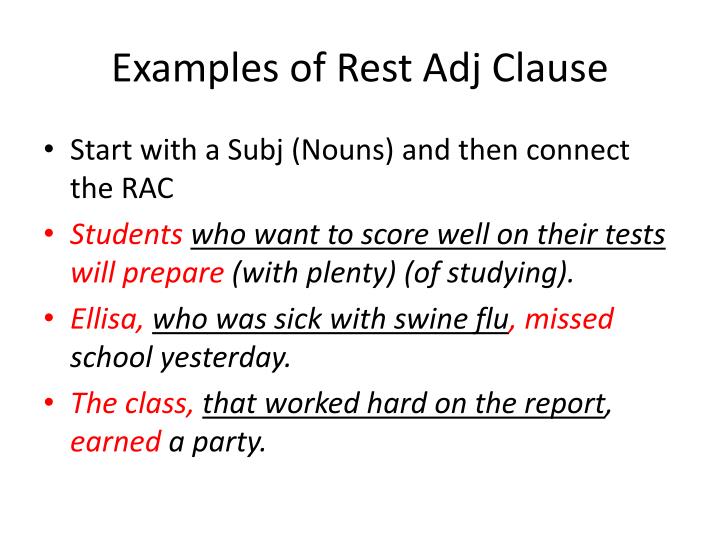




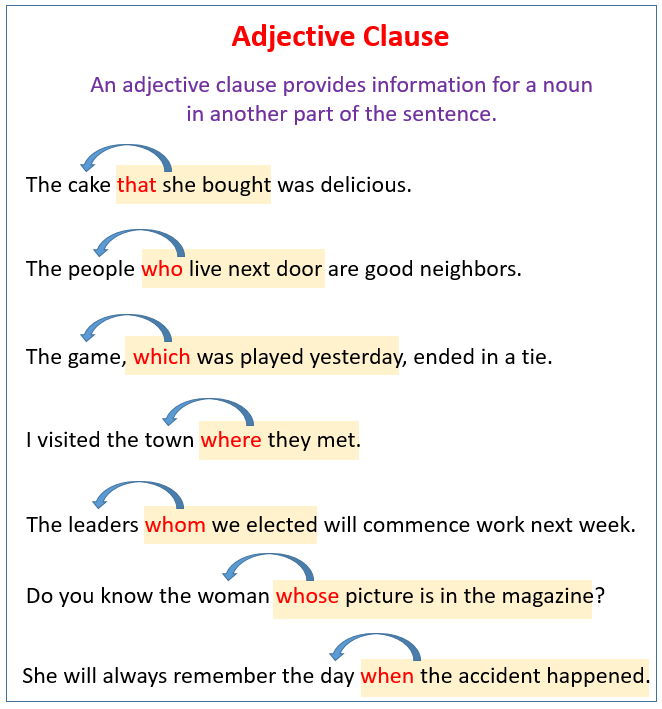

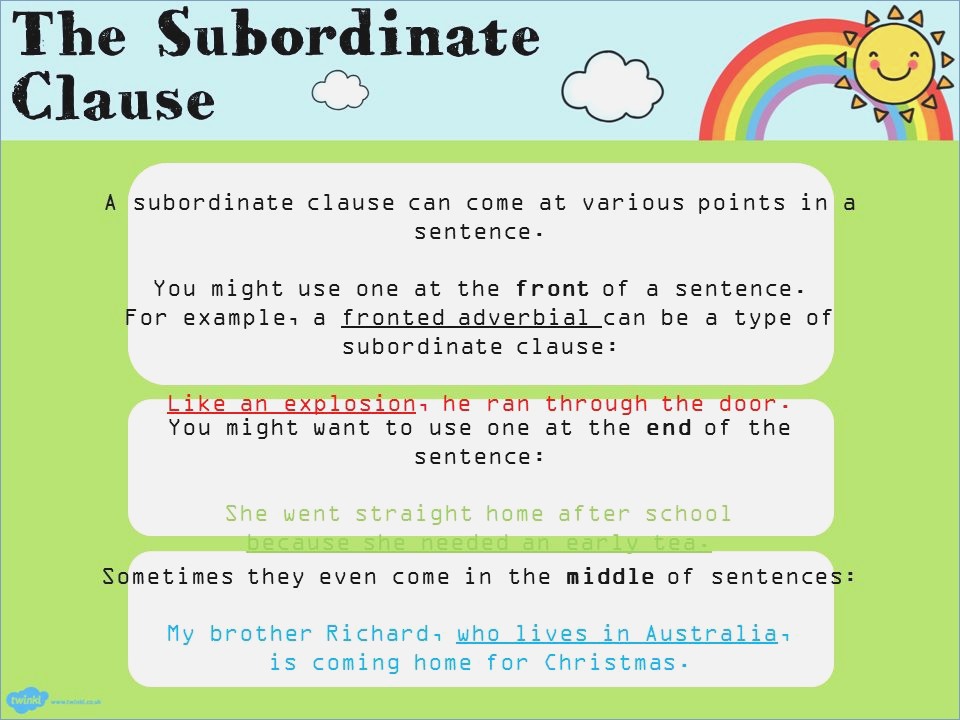
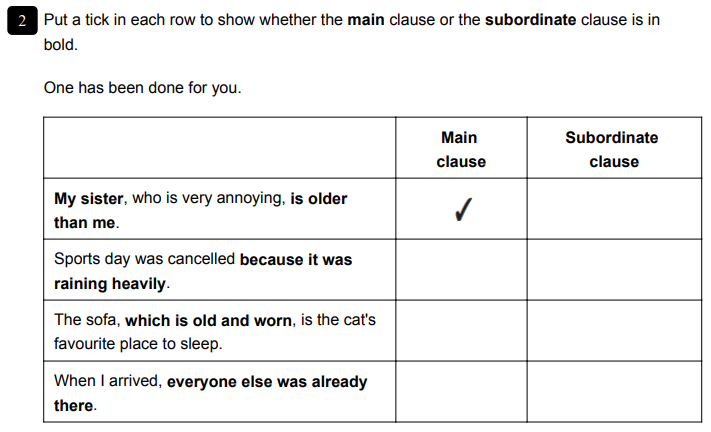




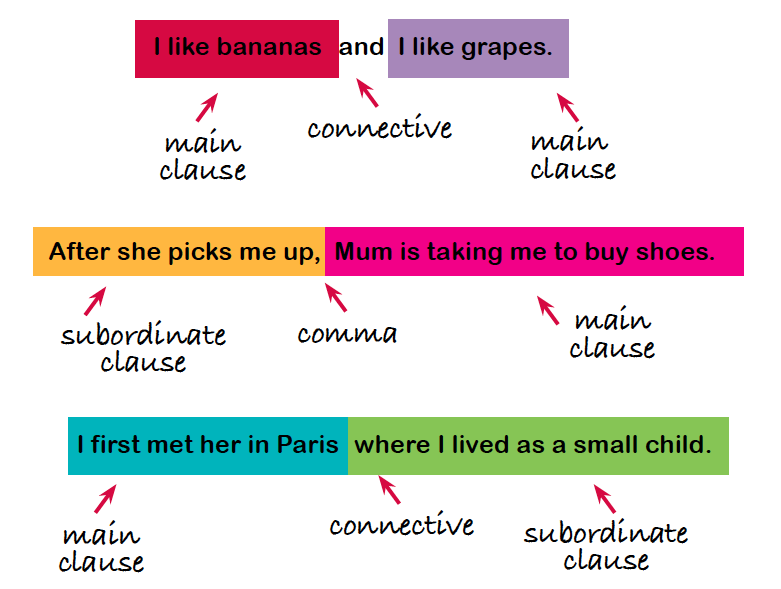



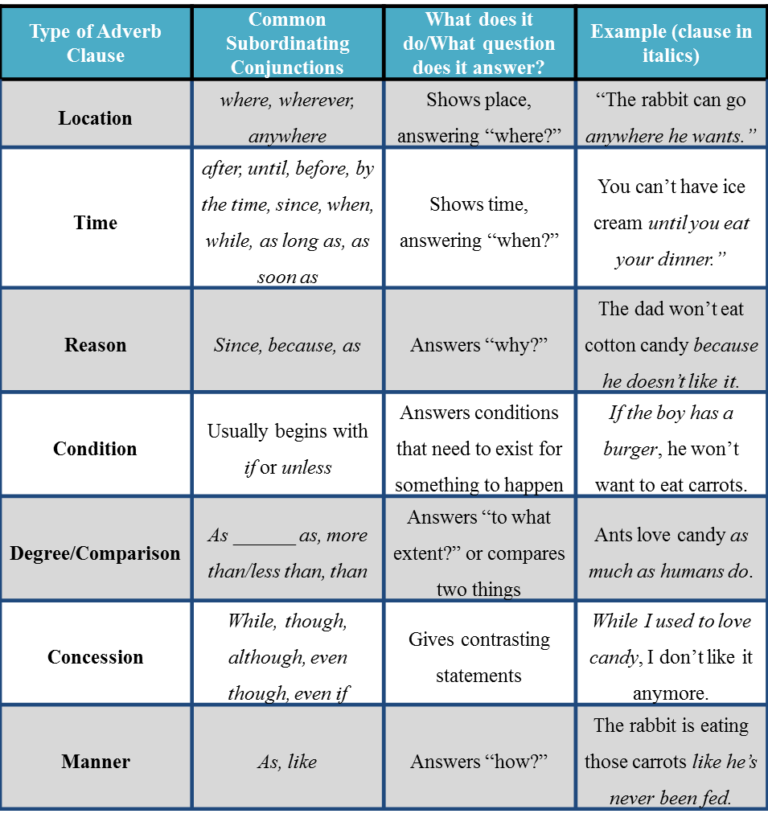


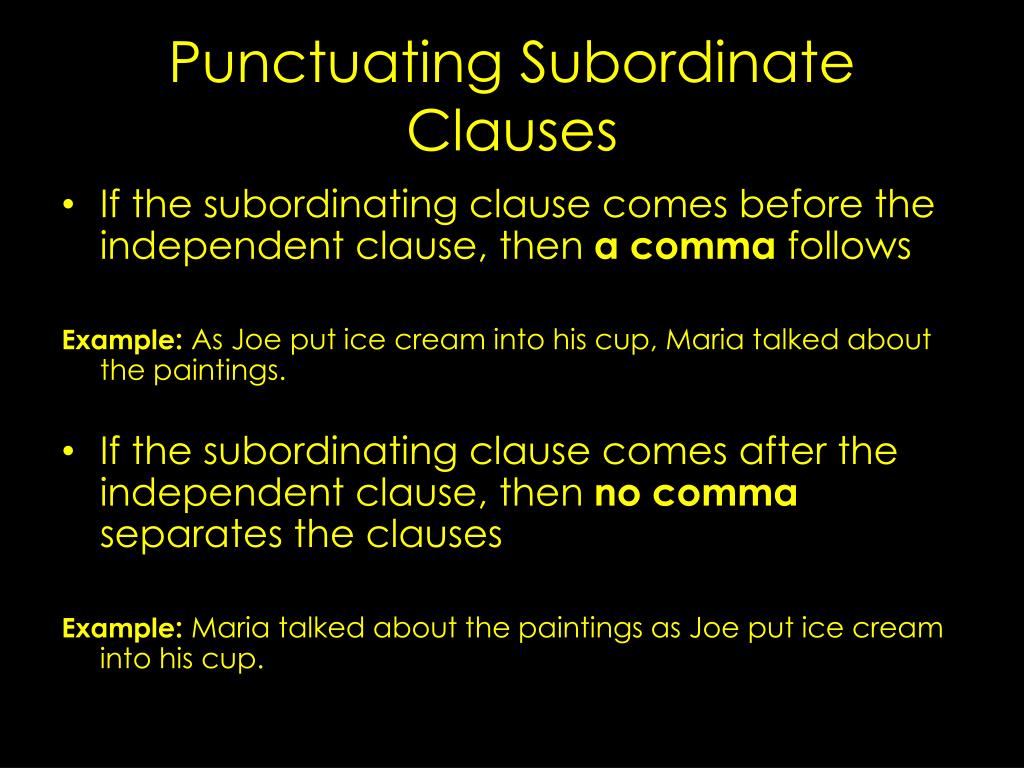


No comments:
Post a Comment
Note: Only a member of this blog may post a comment.